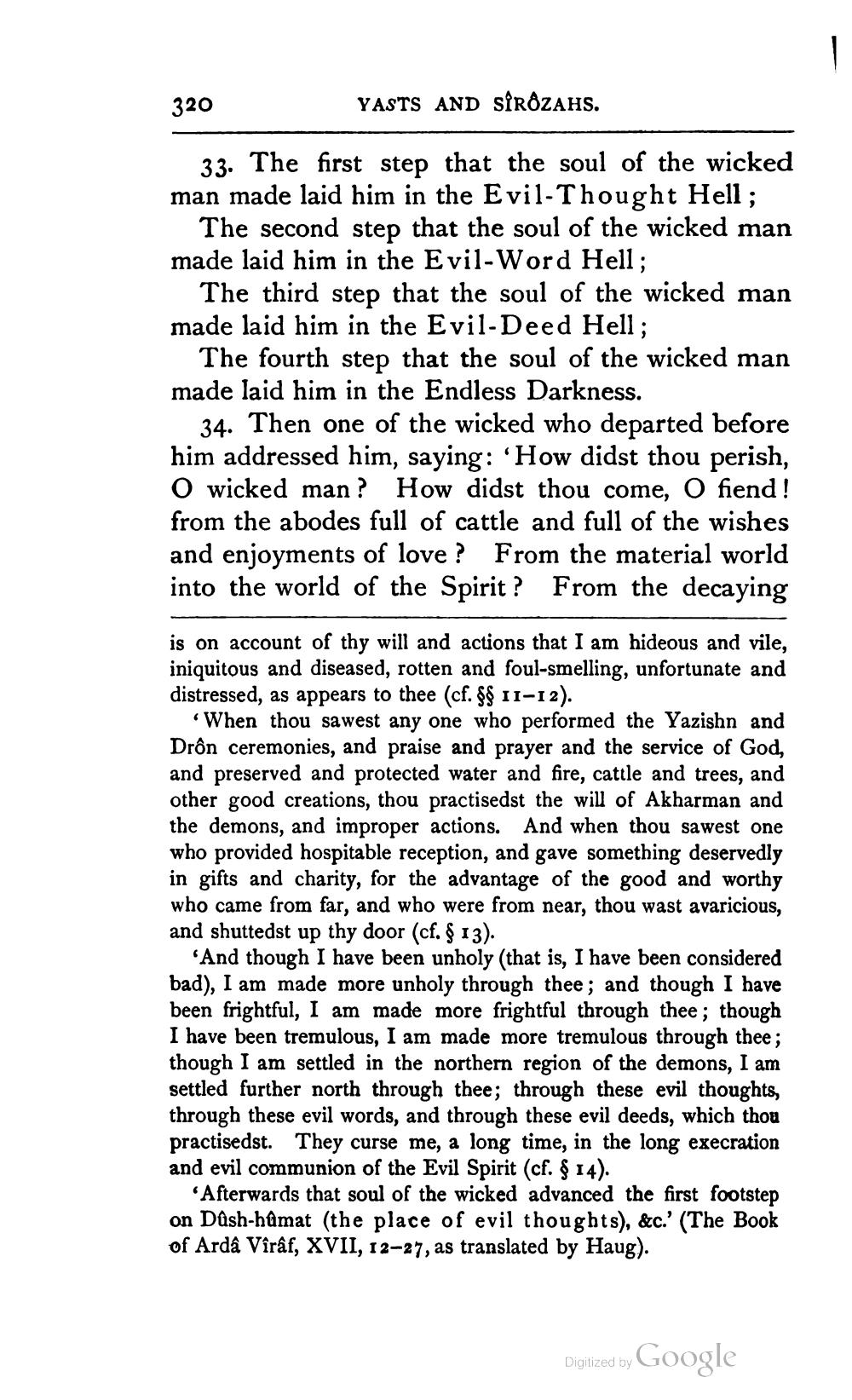________________
320
YASTS AND SÎRÔZahs.
33. The first step that the soul of the wicked man made laid him in the Evil-Thought Hell ;
The second step that the soul of the wicked man made laid him in the Evil-Word Hell;
The third step that the soul of the wicked man made laid him in the Evil-Deed Hell;
The fourth step that the soul of the wicked man made laid him in the Endless Darkness.
34. Then one of the wicked who departed before him addressed him, saying: 'How didst thou perish, O wicked man? How didst thou come, O fiend! from the abodes full of cattle and full of the wishes and enjoyments of love? From the material world into the world of the Spirit ? From the decaying
is on account of thy will and actions that I am hideous and vile, iniquitous and diseased, rotten and foul-smelling, unfortunate and distressed, as appears to thee (cf. $$ 11-12).
When thou sawest any one who performed the Yazishn and Drôn ceremonies, and praise and prayer and the service of God, and preserved and protected water and fire, cattle and trees, and other good creations, thou practisedst the will of Akharman and the demons, and improper actions. And when thou sawest one who provided hospitable reception, and gave something deservedly in gifts and charity, for the advantage of the good and worthy who came from far, and who were from near, thou wast avaricious, and shuttedst up thy door (cf. § 13).
And though I have been unholy (that is, I have been considered bad), I am made more unholy through thee; and though I have been frightful, I am made more frightful through thee; though I have been tremulous, I am made more tremulous through thee; though I am settled in the northern region of the demons, I am settled further north through thee; through these evil thoughts, through these evil words, and through these evil deeds, which thou practisedst. They curse me, a long time, in the long execration and evil communion of the Evil Spirit (cf. § 14).
Afterwards that soul of the wicked advanced the first footstep on Dash-hûmat (the place of evil thoughts), &c.' (The Book of Arda Vîrâf, XVII, 12–27, as translated by Haug).
Digitized by Google




